The best way to combat xenophobia among young people is to introduce them to refugees who are their peers and who did not come to Serbia for tourist reasons, but because they were driven by hardship
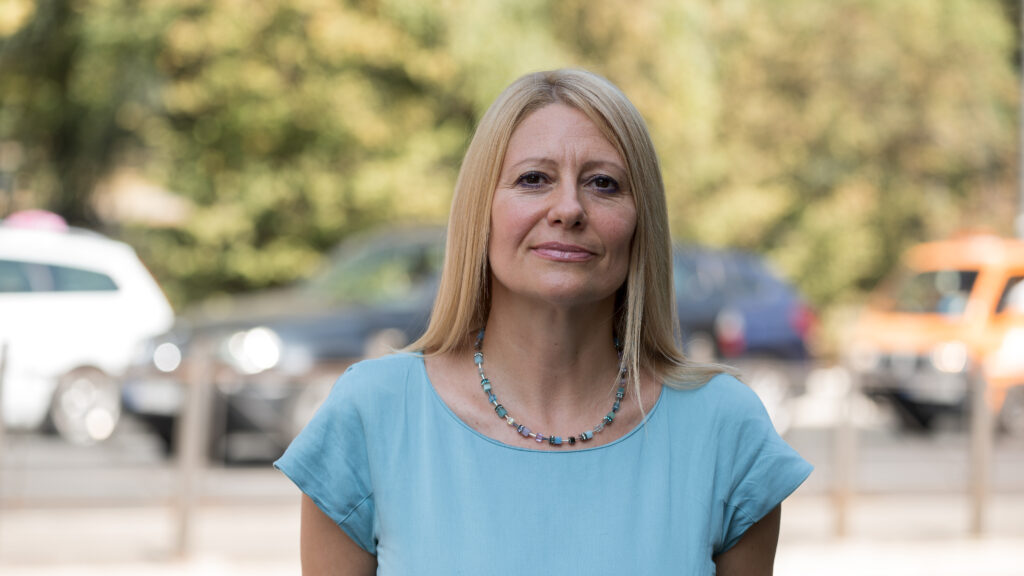 The magazine Diplomacy&Commerce, in collaboration with UNHCR, brings you refugee stories. In this issue, you can read an interview with Professor Ivana Krstić from the Faculty of Law, who discusses the development of legal science in the protection of refugees as well as the collaboration with UNHCR.
The magazine Diplomacy&Commerce, in collaboration with UNHCR, brings you refugee stories. In this issue, you can read an interview with Professor Ivana Krstić from the Faculty of Law, who discusses the development of legal science in the protection of refugees as well as the collaboration with UNHCR.
 This publication was produced within the project “EU Support to Migration Management: Fostering the Integration of Refugees and Migrants” implemented by UNHCR, the UN Refugee Agency, with the support of the European Union. The author of the publication is solely responsible for content that does not necessarily reflect the official views of the European Union.
This publication was produced within the project “EU Support to Migration Management: Fostering the Integration of Refugees and Migrants” implemented by UNHCR, the UN Refugee Agency, with the support of the European Union. The author of the publication is solely responsible for content that does not necessarily reflect the official views of the European Union.
The Faculty of Law at the University of Belgrade has received the prestigious opportunity to establish the De Mello Chair as part of the collaboration between the UN Refugee Agency (UNHCR) and higher education institutions, which focuses on conducting studies in the fields of forced displacement, statelessness, and human rights in general. How significant is this initiative for the Faculty of Law and you?
The Faculty of Law at the University of Belgrade has a long tradition of studying subjects such as International Public Law and Human Rights, within which students have the opportunity to familiarize themselves with refugee law. The Faculty hosts the oldest UN documentation centre in the world, where professors and students can at any time access numerous reports and materials related to the early workings of the UN. Additionally, for nearly two decades, the Faculty has operated a Legal Clinic for Asylum and Refugee Law, which represents one of the oldest forms of clinical education in the world. The Legal Clinic was established by the late Professor Dr. Milan Paunović in collaboration with UNHCR, and it continues to successfully educate final-year students on this important topic.
The De Mello Chairs is an international initiative that brings together universities and academic institutions dedicated to working with refugees, internally displaced persons, and stateless individuals. The De Mello Chairs network was established in Brazil in 2004 to promote academic activities related to these categories of individuals. The initiative is named after Sergio Vieira de Mello, a diplomat and UN veteran, who began his career at UNHCR in 1969 and successfully served in Africa, Latin America, Asia, and Europe. Unfortunately, he was killed in 2003 during an attack on the UN offices in Baghdad. His bust is located in the Palace of Nations, in front of the UN building in Geneva, and serves as a testament to his contributions to the field of refugee law.
The network’s task is to connect researchers who will work on joint projects and exchange experiences regarding research, analysis, student engagement, and direct involvement of refugees in communities. This initiative also involves close collaboration between faculties and universities with local UNHCR offices in countries around the world.
Our country became the second in Europe to join the network in 2023, following the United Kingdom, which is a prestigious achievement for both the state and the university, and illustrates the commitment of the Faculty of Law to further nurture and develop the field of refugee law. For the Faculty of Law, and me personally, it is a great honour that we received an invitation to join this initiative, as it signifies that our long-standing work has been recognized by professionals and academics who are engaged in the protection of refugees. Furthermore, it has been a natural progression given that our cooperation with the UNHCR office in Serbia has been successfully ongoing for nearly 20 years.
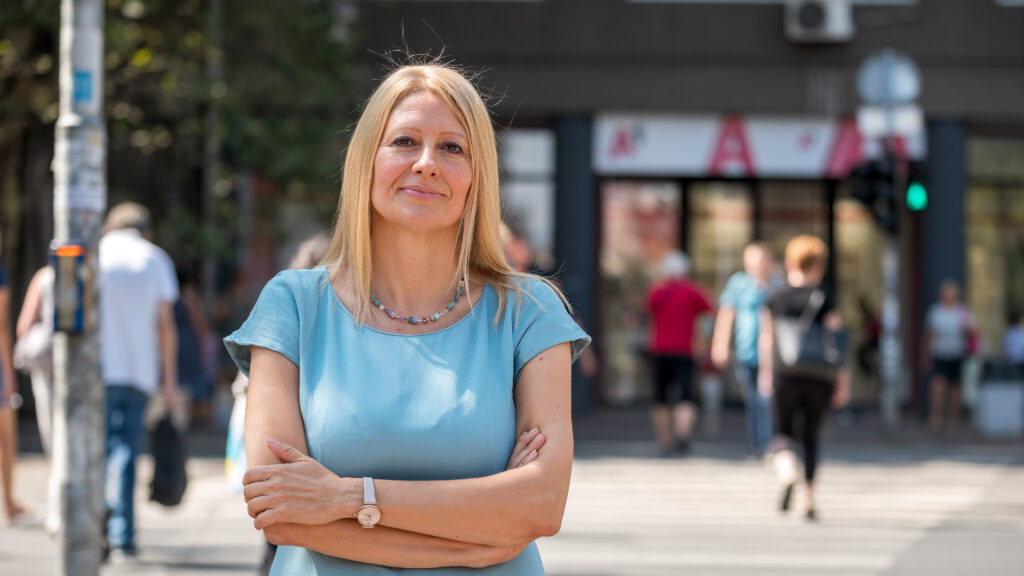 Since 2022, the Faculty of Law has been organizing a Specialist Course on International Refugee Law in collaboration with UNHCR and the International Institute of Humanitarian Law from Sanremo. Can you tell us more about this course, why it is important, and what experiences participants who have gone through it?
Since 2022, the Faculty of Law has been organizing a Specialist Course on International Refugee Law in collaboration with UNHCR and the International Institute of Humanitarian Law from Sanremo. Can you tell us more about this course, why it is important, and what experiences participants who have gone through it?
As a result of collaboration with UNHCR, many very important activities have been created and implemented for the Faculty of Law and its students, as they contribute to their better education and understanding of the significance of refugee law, which is still often discussed in a relatively small circle of experts in Serbia. We have had the opportunity to implement various activities for professionals engaged in the field of asylum, such as conducting different trainings, preparing analyses, newsletters on case law, and manuals for border police, asylum office staff, and asylum commissions, as well as for judges of the Administrative Court. The notable results have been made possible by our excellent team of professors and assistants, which includes Prof. Marko Davinić, Prof. Dr. Bojana Čučković, Assistant Marija Vlajković, and Teaching Associate Ana Memeti. Unfortunately, the topic of displacement is not new to our society due to everything we went through during the 1990s. Additionally, our country was part of the so-called Western Balkan route, which saw over a million refugees pass through in 2015. Today, refugees still arrive in Serbia, but in far fewer numbers. It is important not to lose sight of the fact that we live in a world with over 120 million forcibly displaced persons. For this reason, we are motivated to introduce and promote activities that enhance knowledge in the field of refugee law. In 2022, we came up with the idea, in collaboration with the prestigious Institute of Humanitarian Law from Sanremo and the UNHCR office in Serbia, to offer a specialist course on International Refugee Law. The course was conducted in 2022 and 2023, and we expect its third edition in October of this year.
We are particularly proud that this course is conducted in a modern way, using various online tools that allow students to think critically, participate in group work, and respond to hypothetical situations.
As a result of cooperation with UNHCR, many very important activities have been created and implemented for the Faculty of Law and its students, as they contribute to their better education and understanding of the significance of refugee law
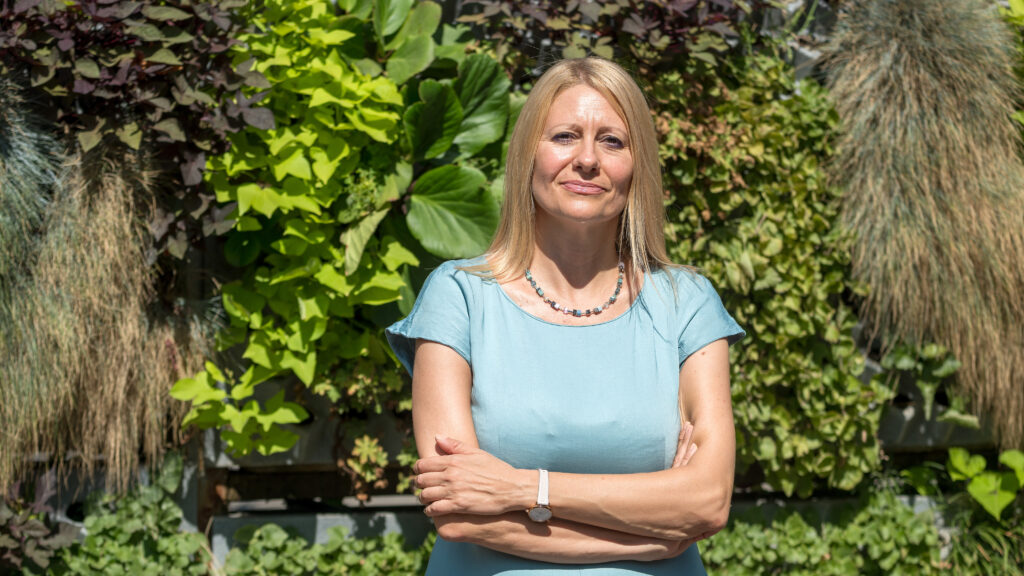 The educational institution where you teach is among those that actively support the development of a system that helps forcibly displaced persons and people at risk of statelessness. Why do you think it is important for institutions and individuals to do what they can to help those in greatest need?
The educational institution where you teach is among those that actively support the development of a system that helps forcibly displaced persons and people at risk of statelessness. Why do you think it is important for institutions and individuals to do what they can to help those in greatest need?
The Faculty of Law is a prestigious institution that educates future lawyers and decision-makers. For this reason, it is important for us that our students learn as much as possible about the topic of refugee law and apply their knowledge in practice tomorrow. We already collaborate with our graduates who are professionally engaged in asylum, mainly in the non-governmental sector, where they use their knowledge and research talent to inform about the state of asylum and advocate for policy changes that should contribute to the protection of human rights in Serbia.
However, it is important to emphasize that our programs do not only involve the transmission of knowledge but also the enhancement of skills, as well as raising awareness of refugee issues for a deeper understanding of the phenomenon of displacement and breaking down various myths and stereotypes that exist in our society. Additionally, contact with refugees—whether through visits to asylum centres or their arrival at the Faculty of Law for specific activities—greatly contributes to understanding the significance of the topic and the desire to help those in distress.
This is also important for nurturing the significance of pro bono work, meaning understanding and accepting that every lawyer should dedicate a certain amount of time to providing free legal assistance to clients in need.
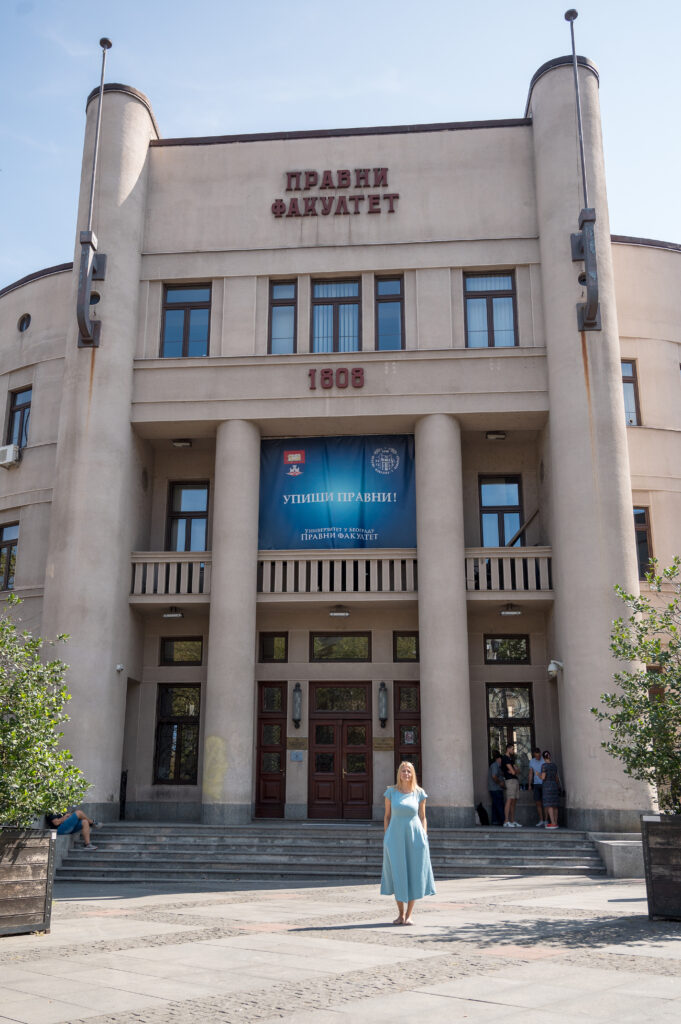 Recent public opinion surveys have shown a concerning level of xenophobia among youth, primarily high school and university students. Since you are in direct, daily contact with students, what are your impressions on this issue? How should we best approach this problem?
Recent public opinion surveys have shown a concerning level of xenophobia among youth, primarily high school and university students. Since you are in direct, daily contact with students, what are your impressions on this issue? How should we best approach this problem?
Working on these topics is crucial for combating xenophobia and stereotypes related to refugees among young people. The best way to achieve this is for students to hear personal stories, and to meet refugees who are their peers and who did not come to Serbia for tourism, but rather because they were forced by dire circumstances.
So far, it has been shown that such classes for exchanging experiences and discussions have been the most effective, and our students have further promoted these values among other students, family members, and friends. Additionally, we organize a conference once a year where students present their research in groups on various topics related to asylum, migration, human trafficking, gender-based violence, and statelessness.
During the research process, students become aware of the discrepancies between standards and practice and identify ways to overcome them, studying cases from practice, whether domestic or international, particularly examining judgments from the European Court of Human Rights.
We are already collaborating with our graduates who are professionally engaged in asylum, mostly in the non-governmental sector, thereby influencing the dissemination of information about the state of asylum issues with their knowledge and research talent
We have repeatedly surveyed students’ attitudes on this topic, then discussed them and tried to explain why some of their views are incorrect or shaped by their environment and stereotypes.
It is particularly concerning that a significant portion of the student group believed it was acceptable to have civilian patrols to protect the “people” from migrants. When we directed them to our Constitution and our domestic norms, which answer who can exercise repressive power and what such self-organization could mean for citizens, they realized how problematic it is that such slogans have not been removed from the streets. A similar discussion was held on the topic of education when students saw from practical examples that young people quickly learn the language and that initial unfamiliarity with Serbian should not be an obstacle to accessing education for asylum seekers. These exercises also include those in which students are tasked with playing different roles to understand what it is like to be in “someone else’s shoes,” which also serves as a powerful tool for breaking down xenophobia and understanding the issues of displacement. We hope that new initiatives, projects, and partnerships will allow us to achieve even better results in working with young people.
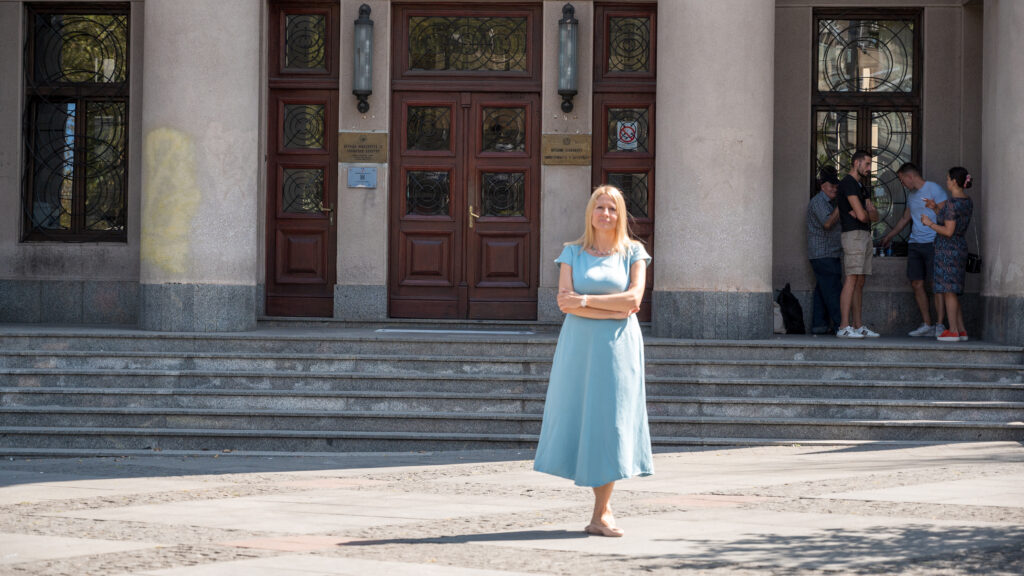 This article was produced within the project “EU Support to Migration Management: Fostering the Integration of Refugees and Migrants” implemented by UNHCR Serbia in partnership with IOM Serbia and SCRM with support of the European Union. The author of the article is solely responsible for content that does not necessarily reflect the offi cial views of the European Union.
This article was produced within the project “EU Support to Migration Management: Fostering the Integration of Refugees and Migrants” implemented by UNHCR Serbia in partnership with IOM Serbia and SCRM with support of the European Union. The author of the article is solely responsible for content that does not necessarily reflect the offi cial views of the European Union.